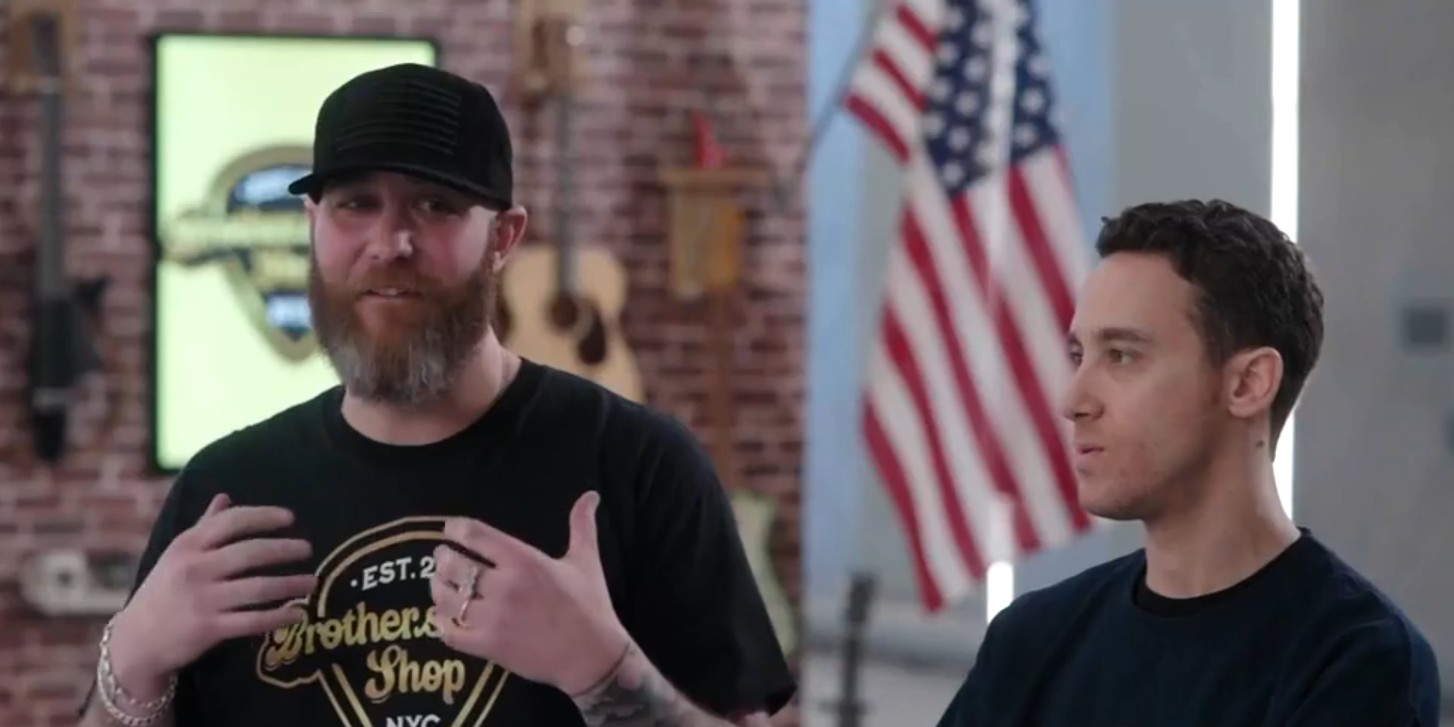In season 1 of Fox’s ‘The Fixer,’ the well-known entrepreneur and investor, Marcus Lemonis, steps in to help businesses that have reached a breaking point. In episode 2, titled ‘Jazz Audio,’ he once again digs deep, assessing every crack of each business’ foundation to pick one, invest his own money, and work alongside them to spark a true turnaround. Ultimately, the titular venture may become the lucky one to get his investment. This episode sets up his meeting with the second batch of hopeful entrepreneurs, setting the stage for tough decisions and hard-earned second chances.
Marcus Lemonis Turns Down Two Businesses Before Selecting Jazz Audio
The episode commences as Marcus enters the building and meets the owners of the first venture, Escape Room, New Jersey. The owners, Jeff and Danielle, have opened their company in three locations: 1. Englewood, with $500,000 revenue per year; 2. Madison, with $780,000 revenue per year, and 3. Pompton Lakes, with $1.2 million in revenue per year. In the end, their profit margin is about 50%, with an approximate $1 million return. Jeff explains that they need investment to turn the business into a franchise and expand it. After trying their escape box, bumping ball, and rage room, Marcus honestly informs them that although they have excellent cash flow, if they don’t constantly change the games, the customer retention rate is going to decrease. He states that the venture is not scalable, and it is not something he would invest in.
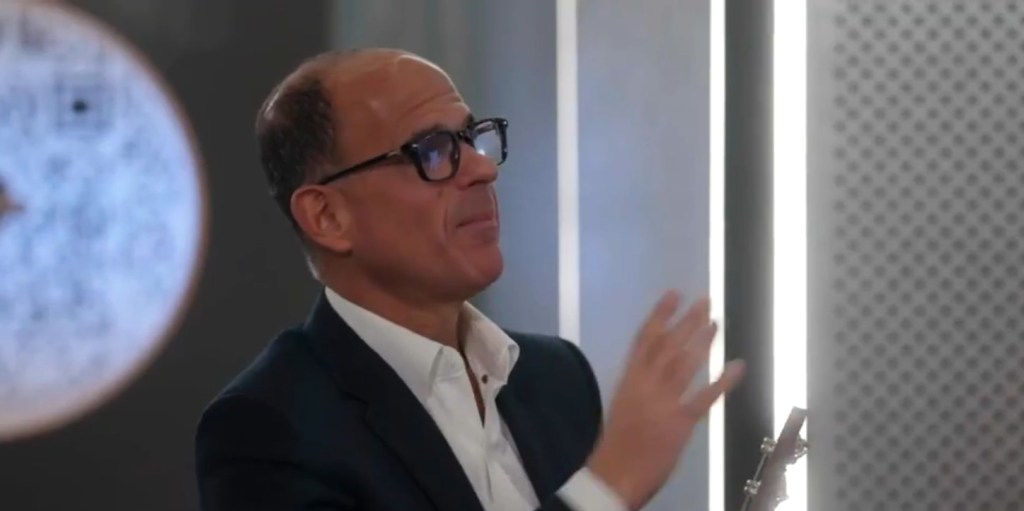
Right after, he meets Frank, Shaun, Carlos, and Ryan from the business, Brothers Guitar Shop. They have a retail store in Manhattan, New York, and started out in the back of their hardware store. Their parents are immigrants, and their family hardware business has been operating for 40 years. When Marcus asks, Frank admits that the profit margin is far better for the hardware store. However, he adds that he also provides guitar lessons, following which Marcus promptly adds that it has 100% profit. The latter explains that although the guitar business generates the most revenue, it differs from being profitable since it also has expenses against it. Marcus bluntly points out that it is their hobby, and considering their gross profit and costs, he doesn’t see this as an opportunity. He suggests keeping their hobby going, but not at the expense of their hardware store.
The next business, Jazz Audio, takes Marcus by surprise when the owner, Gene, makes his entry in a car with loud music. Gene discloses that the venture provides car sound and security, along with installing accessories on cars. He also gives Marcus a demo of their car sound system and says he wanted to become a rockstar, but when the plan failed, he opened the stereo store. Since Marcus has seen millions of similar businesses, he asks what is different about Jazz Audio? The owner clarifies that he has a process just like McDonald’s, and his store targets the few square miles around the store completely. He continues to say that it is his goal, and his total revenue is $1.3 million, with net savings of around $450,000. Upon asking, he explains that he wants to start training people at his present store and get ready for the next location.
While Assessing Jazz Audio, Marcus Finds Mismanaged Inventory and Tense Staff Dynamics
Marcus states that his job is to use his resources to help the owners navigate from where they are now to where they want to go. Gene gets delighted when he hears Marcus say that he sees an opportunity worth pushing. However, the latter mentions that before investing, he is going to see the people, the product, and if the profits are legit. The focus shifts to Seldon, Long Island, where Marcus has arrived to visit the Jazz Audio store, which has been in business since 1991. He goes inside and meets the staff, Rob, and Michael. In his confessional, he reveals that the automobile industry is enticing since it has great business with significant margins. After welcoming Marcus, Gene introduces him to his wife, Susan. When Marcus observes the items in the store, he notices missing stereos from the stands.
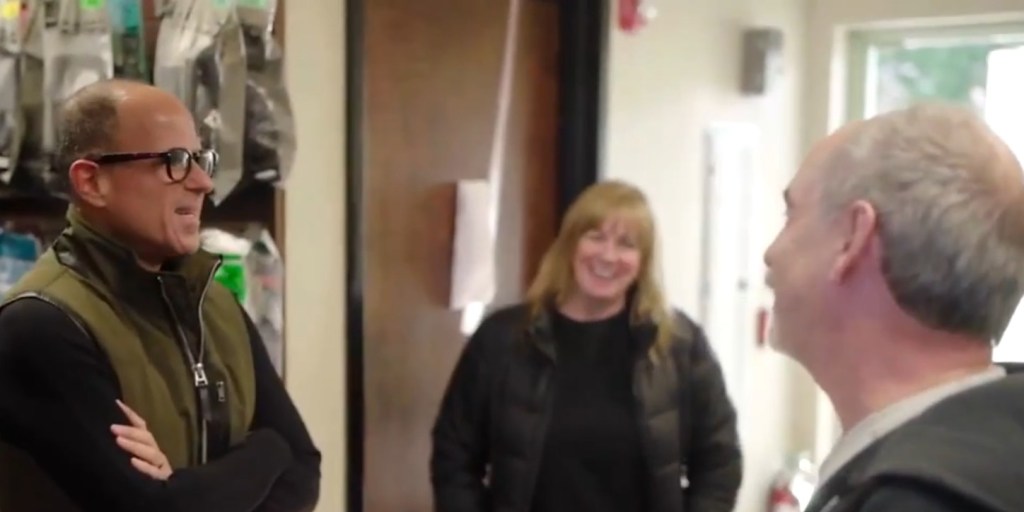
Marcus further discovers radios on display that have been out of production and tire rims that are no longer in production. He remarks that it is not a good look for the business because unless a customer gets a good experience, it is not going to increase the business. He points out that his first impression is that Gene is not taking good care of the business. Marcus proceeds to speak with Michael, who has been working there for two years, prior to which he ran global operations for a renowned company for 23 years. When Marcus discovers that he handles most client interactions and sometimes retail, but does not directly manage anything, he becomes disappointed. He notes that Michael has better knowledge of managerial positions than Gene. What disappoints him is that Jazz Audio does not have an inventory supply chain system.
Gene then informs Marcus that the business has three installers, one salesperson, and him to review everything. However, when the former voices concern that the staff needs to get to the store on time, but he feels they don’t care about business, it upsets Marcus. In his confessional, he states that although the owner blames the technicians, they sit idly because there is nothing to buy. He gathers everyone and declares how he finds technicians to be the driving force, and they are underappreciated and underrecognized. When he discovers that two of the staff have been working at the business for 25 and 15 years respectively, he inquires if they stuck around because they love it here. However, they honestly express that sometimes things can get tense. Michael discloses that Gene has a happy side and a completely “evil” side.
When Marcus Uncovers Toxic Leadership at Jazz Audio, he Forges a Turning Point
Marcus finds that Gene’s blowouts have even cost the business some of their dealers. This raises concern for the investors as he observes that in an aftermarket business, individual customers and wholesale patrons like dealerships bring the revenue. Hence, if the store loses the dealers in the local area, the staff’s livelihood can be affected. Marcus then speaks with Richie, who has worked at the store since 1993. The latter is the unhappiest among the staff due to Gene’s behavior. Ultimately, Marcus gathers the entire staff before Gene and asks them to have an honest conversation with each other. Michael quickly remarks that mutual respect is important for him, but the owner does not respect the staff. This makes Gene angry, and he ends up saying they come into the store just to get their paycheck.
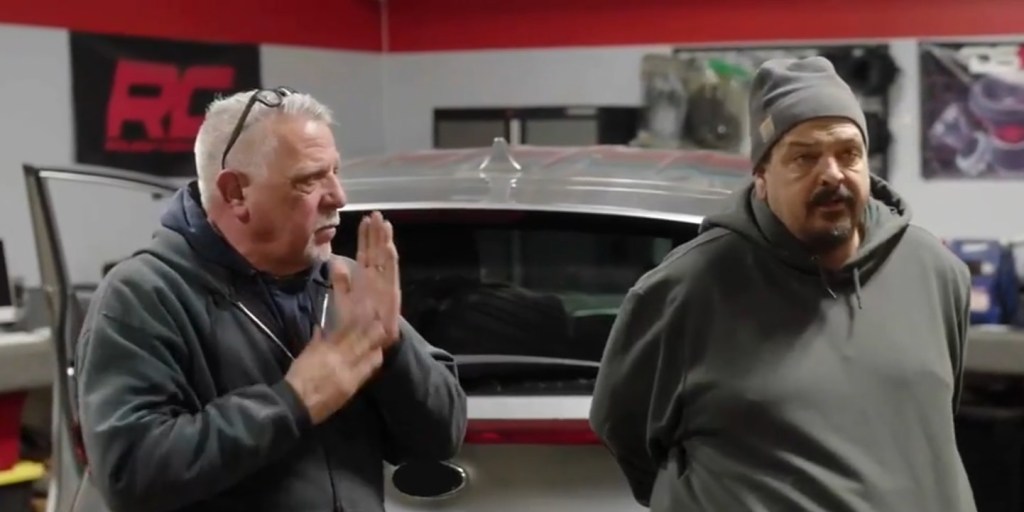
While explaining how it feels to be in his shoes, Gene specifically mentions Richie’s name. It prompts the latter to confront him directly, heating up the environment. The owner clarifies immediately that he was referring to everyone and apologizes for referring to him as a “fat a**.” Marcus realizes his people-process-product model is busted since the business is “dysfunctional.” When one of the technicians mentions that whatever Gene is trying to say is correct, Marcus explains that the owner could’ve just expressed his thoughts in a better manner. The investor declares that it is time to fix the business’ structure, shifting his focus to revamping the store entirely. During the ongoing renovation, Marcus urges Gene to understand that the business needs a manager and a little less of his presence to flourish.
Gene finally announces that Michael is going to be running every aspect of Jazz Studio from now on. He remarks that it is hard for him to step back since he has poured 45 years of his life into the business. Marcus believes that Michael is capable of handling every store operation by himself. The investor explains to him that he has now upgraded to QuickBooks, which can help him track all the assets, cash, and liabilities instead of using paperwork. Marcus takes Gene and Michael first to a regional inventory to improve their inventory condition. He has brought the owner to notice if he lets go of his reins. When he notices Gene is speaking with the dealer, he calls Michael aside and urges him to step up in his new role. Once Michael takes over the conversation with the dealers, Marcus tells Gene he must let his manager make him money.
Marcus Flips the Script by Giving His Equity to the Employees After the Deal
Marcus discloses that he has always brought people smarter than him to run his business, which has only helped the ventures to flourish. In a show of good faith, Marcus pays $50,000 for the new items in the store’s inventory. Since Michael takes control of rebuilding the inventory, Marcus takes him to a local dealership to build relationships and see how it works. As the new manager handles everything with precision, Marcus decides to teach him to use technology and understand the customer base. He introduces Michael to Salesforce, a platform that will help him manage accounts and communicate with every single customer. As everyone returns to the transformed store, they find the interior quite refreshing. In a noticeable moment, Marcus unveils an old picture of rockstar Gene, highlighting the history of the venture’s origin.
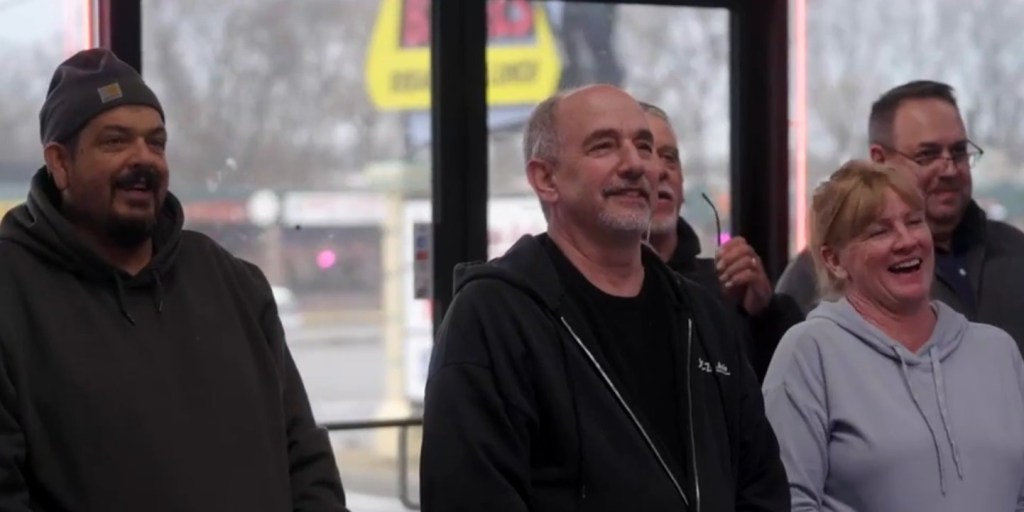
Marcus states that this picture can serve as a conversation starter with the customers. Finally, he, Gene, and Susan settle down in the next-door bagel store to discuss Jazz Audio’s financials and understand if there is an investment opportunity. Marcus highlights that the previous year, the venture did $900,000 in sales and $239,000 in gross profits, putting their profit margin at 27%. Putting their expense of $190,000 against the $239,000 brings their profit to only $48,000, to approximately $50,000. When Susan remarks that the profit is not that high, Marcus remarks that Gene doesn’t know his numbers. This is because when he first met the owner, he had missed calculating the gross profit. The investor makes it clear that his offer is going to be around $50,000 based on the actual profit.
Marcus elaborates that he wants to invest the $50,000 he paid for the inventory purchase and wants some equity for it. Initially, Gene shows reluctance to make a decision right away. However, after much consideration, he declares that giving Marcus 20% equity is the fair choice. After shaking hands on their new deal, they go back to the store and reveal about the same to the staff. In a shocking twist, Marcus asks for one dollar each from the staff- Richie, Rob, Michael, and Juan. After receiving the $4, he declares that he has now sold his 20% equity equally among the four of them. In his confessional, he reveals that he wanted the employees to see the business’ value. Ultimately, Marcus bids goodbye to Gene, expressing thanks for giving him a chance to turn the business around.
Following Marcus’s Changes, Jazz Audio Has Been Earning Glowing Customer Reviews
Since Marcus stepped in to completely transform Jazz Audio, the difference has been undeniable. What was once a mismanaged car sound and security shop has now become a local go-to for everything from custom radio upgrades to security installations, and aftermarket accessories. Their social media showcases sleek sound system installs and flashy car modifications, proudly flaunting their work. It is not just for their loyal customers but also for the new potential clients. However, it is not just the look of the business that has changed because Jazz Audio has positioned itself as more than just a stereo shop.
Jazz Audio now serves everyday drivers and local automobile dealers, offering parts, accessories, and even tire retail services. The results speak for themselves as the venture proudly holds a 4.2-star rating on Google, which is backed by 242 written reviews. Some of the most notable reviews are, “Best place for car installation and best customer service,” “Great service. Their honesty and quality of their products is awesome!!,” and “Fast service, great price, friendly staff, and very knowledgeable.” For a business that was once at risk of losing its customer base, Jazz Audio now feels like a true neighbourhood success story.
Read More: The Fixer Episode 1 Recap and Perspirology Update

